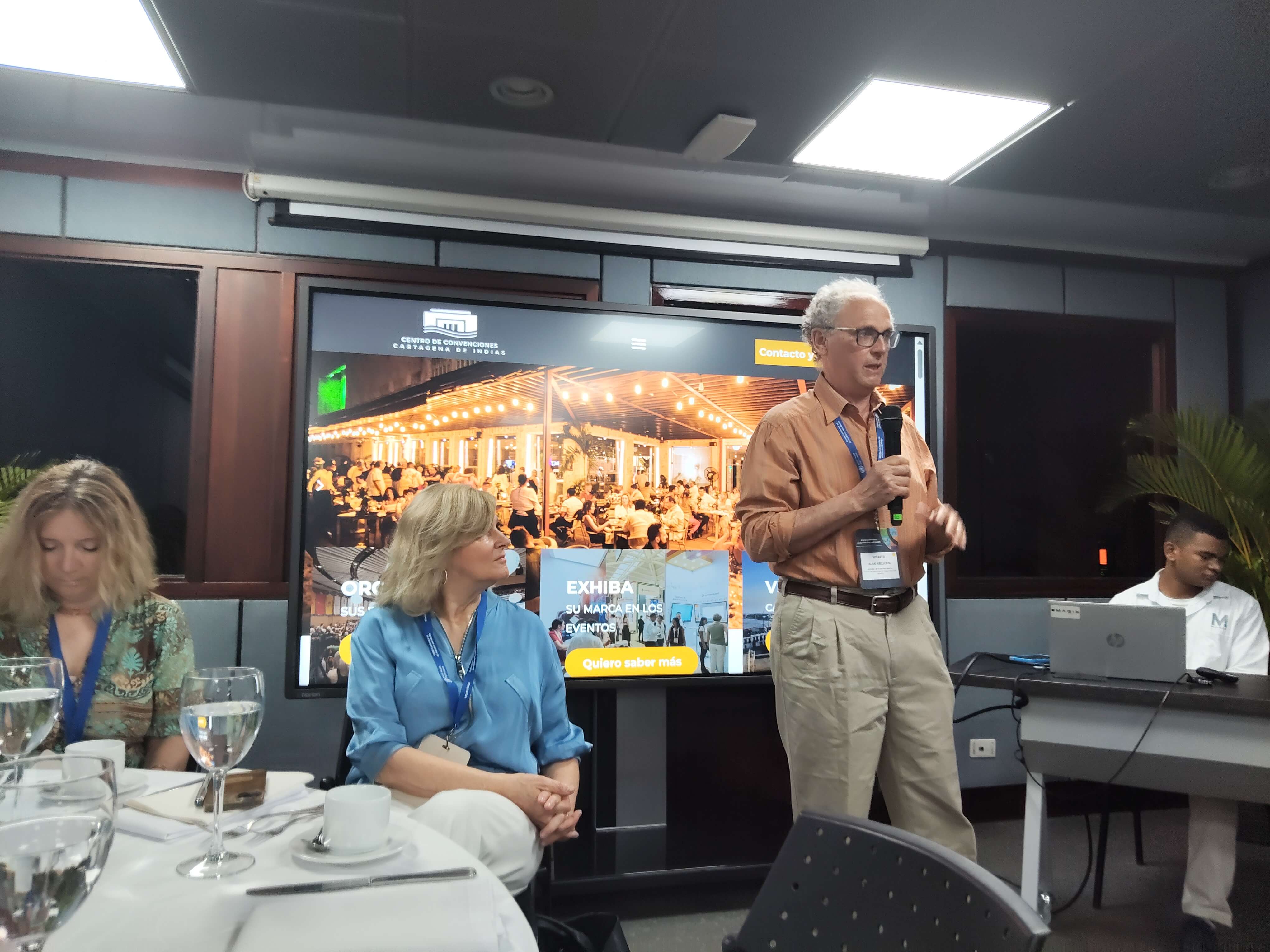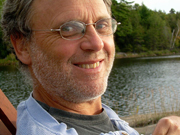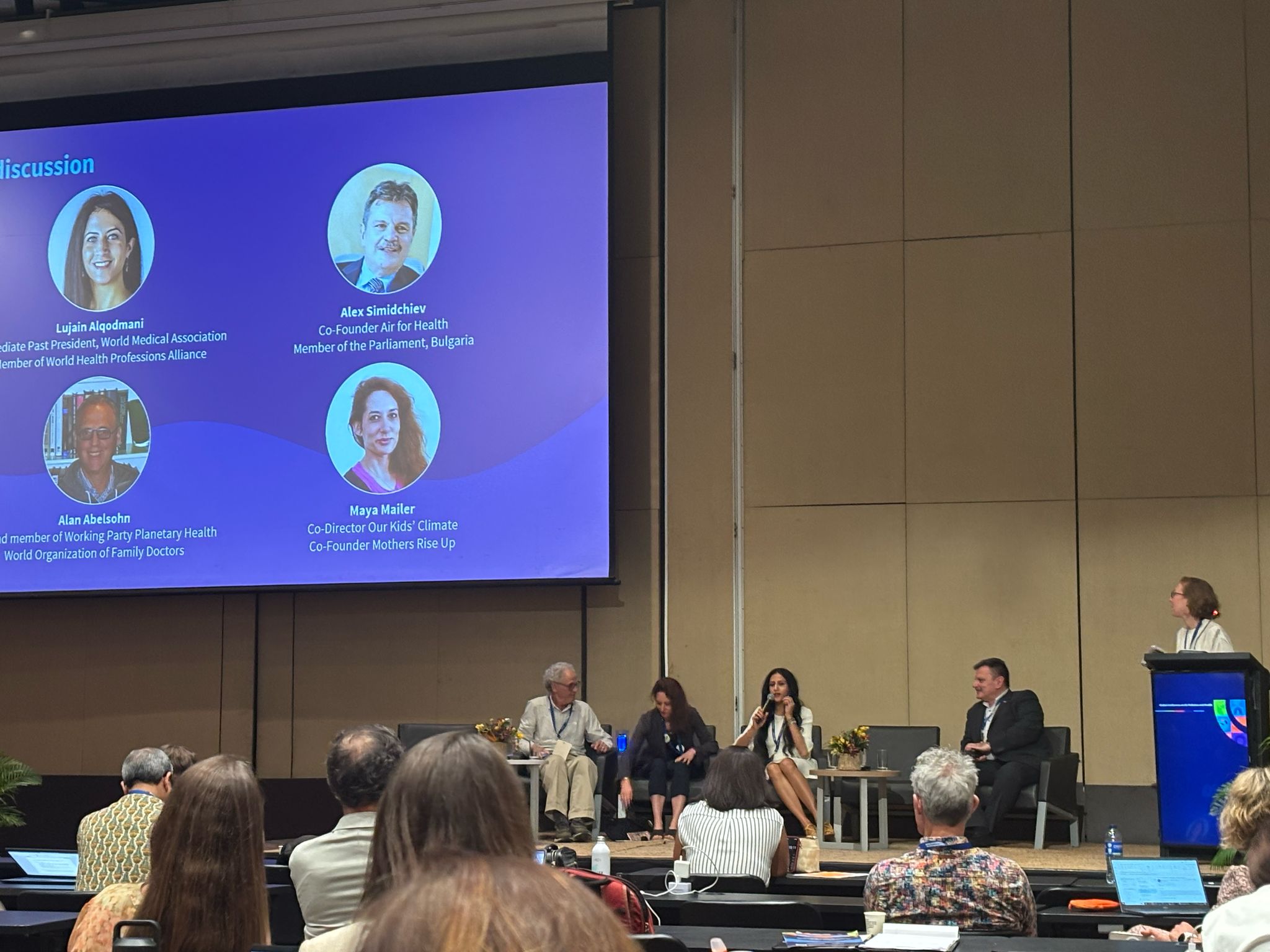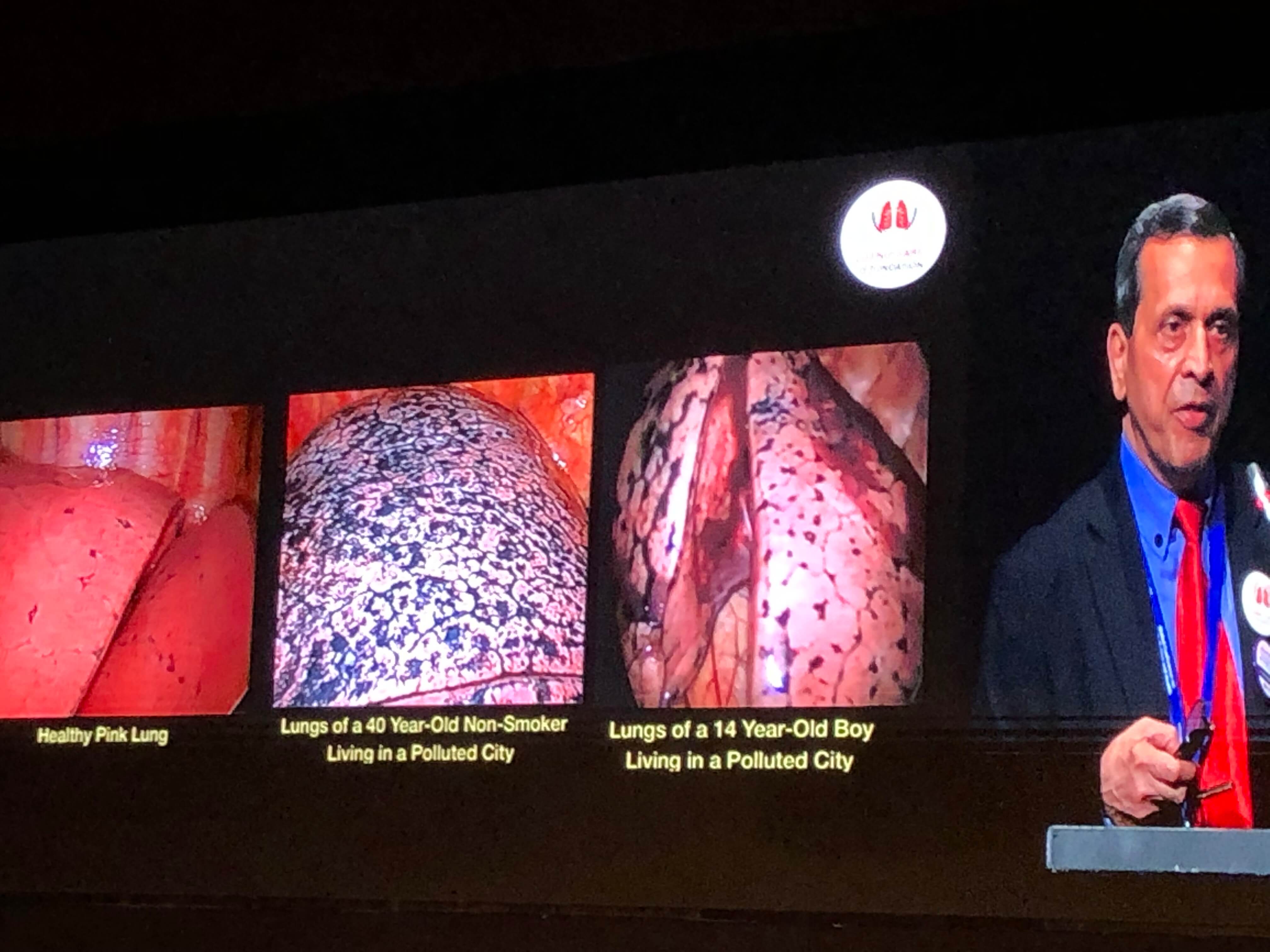WHO Clean Air Conference: A Global Call for Action

WONCA at the WHO Clean Air Conference: A Global Call for Action

By Dr Alan Abelsohn (Canada),
Department of Family and Community Medicine and the Dalla Lana School of Public Health,
WONCA Working Party on Planetary Health
I attended the Second WHO Conference on Air Pollution and Health: Accelerating Action for Clean Air, Clean Energy Access and Climate Mitigation in Cartagena, Colombia, from 25–27 March 2025, as an invited representative of WONCA.
The conference brought together a wide range of participants, including Ministers of Health, Environment, and Energy, UN agencies, development organisations, and researchers. It provided a valuable platform for exchanging knowledge and advancing coordinated, evidence-based action to tackle air pollution — a leading cause of death and illness globally.
The focus was clear: urgent action is needed. Air pollution causes an estimated 7 million premature deaths each year and is the second most important risk factor for noncommunicable diseases (NCDs), after high blood pressure. Over 2.1 billion people still rely on polluting fuels indoors for cooking and heating. These issues are linked to health equity, energy access, and climate justice — and require collaborative solutions across sectors.
Prior to the event, WONCA joined a major global call to action led by WHO. The statement, now signed by over 47 million people — including health professionals, patients, civil society groups, and individuals — demands immediate steps to reduce emissions, enforce stricter air quality standards, and transition to clean energy sources. Read the WHO press release.
Throughout the event, I was encouraged by the emphasis on real-world collaboration. The conference fostered not only high-level policy engagement, but also dialogue between regions, cities, and health professionals who are implementing solutions on the ground.
There were also powerful personal stories. One that stood out was from the mother of Ella Roberta Adoo Kissi Debrah, a 9-year-old from London who died in 2013 after years of asthma exacerbations. Ella became the first person in the world to have air pollution officially recognised as a cause of death. Another impactful presentation came from Dr Arvind Kumar, a thoracic surgeon in Delhi, who shared images of blackened lungs from young non-smokers exposed to the city's toxic air — comparing them to lungs from long-term smokers.
As part of WONCA’s involvement, I helped lead activities on Youth Day, where one of the trainers from our Air Health Train the Trainer programme chaired the session. I also participated in a panel on strengthening action among the health workforce and shared WONCA’s ongoing commitment to train family doctors and their teams in recognising and addressing the health effects of air pollution.
Importantly, WHO launched the Air Pollution and Health Training Toolkit for Health Workers, which WONCA helped to develop. This is a practical and accessible resource for use in primary care and public health training around the world.
Overall, the conference highlighted the growing recognition that clean air is not a luxury — it is a human right. WONCA is proud to stand with global health organisations in calling for urgent action to secure clean air and a healthier planet for all.

